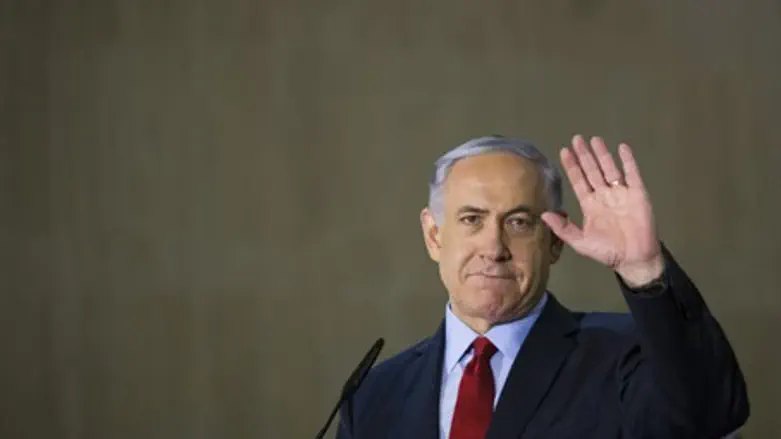
The United States appears not to be satisfied with Prime Minister Binyamin Netanyahu’s apology to Arab Israelis over remarks he made on election day.
Speaking to reporters Monday, after Netanyahu’s apology, Deputy State Department spokeswoman Marie Harf said the United States expects Netanyahu’s words to backed by actions.
“The President, I think, addressed this in his interview that ran this weekend – that given [Netanyahu’s] statements prior to the election, it’s going to be hard to find a path where people are seriously believing, when it comes to negotiations, that those are possible,” she said.
“So we are evaluating what’s taking place. And I think what we’re looking for now are actions and policies that demonstrate genuine commitment to a two-state solution, not more words. So that’s what we’ll be looking for,” added Harf.
She went on to say that Netanyahu “said diametrically opposing things in the matter of a week, so which is his actual policy? That’s why what we said is words aren’t enough at this point. What we need to see are actions, actions and policies that demonstrate a genuine commitment to the peace process.”
“I think we just don’t know what to believe at this point,” added Harf.
Speaking earlier to Arab mayors, Netanyahu offered a public apology for saying on election day that "huge numbers of Arabs" were coming out to vote, adding that many were being brought to the polling booths by V-15 and other NGOs funded from abroad.
"The things I said hurt some citizens. I had no intention [to cause harm] and I'm sorry that I did. I see myself as Prime Minister of all," he told the mayors.
Netanyahu's remarks caused a firestorm in Israeli media, with many accusing the Prime Minister of using racism to win over voters.
Left-wing politicians were particularly appalled by the statement, with MK Shelly Yechimovich (Labor) writing: “No western leader would have dared issue a racist text like that.”
The United States was similarly displeased with Netanyahu's comments. White House Spokesman Josh Earnest noted Thursday that they were "deeply concerned by decisive rhetoric that seeks to marginalize Arab-Israeli citizens."
The Joint Arab List rejected Netanyahu’s apology, saying that “the racism of Netanyahu and his governments did not begin and end with this inciting statement.”
